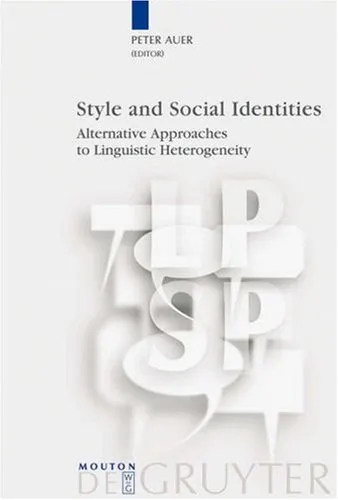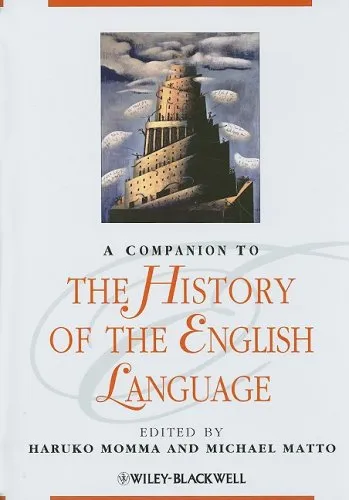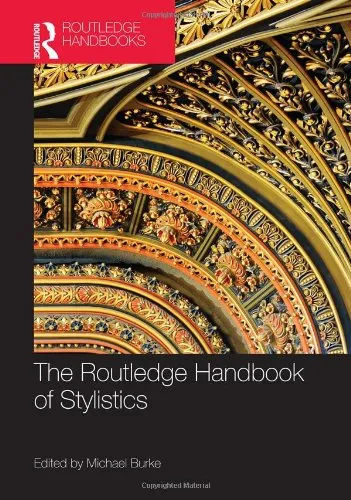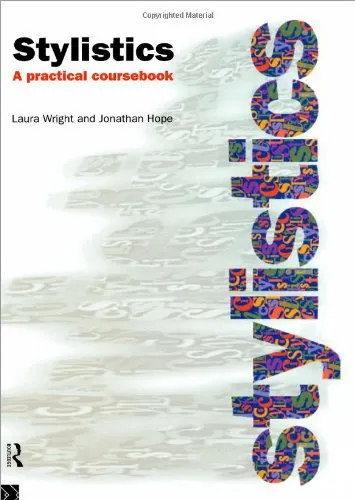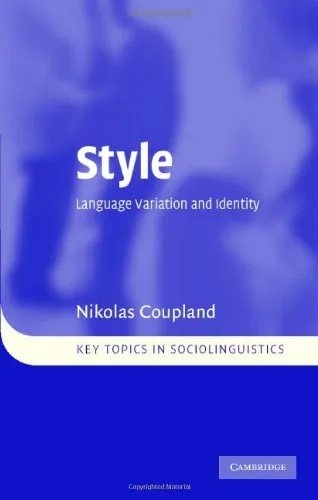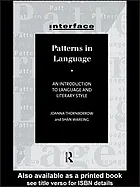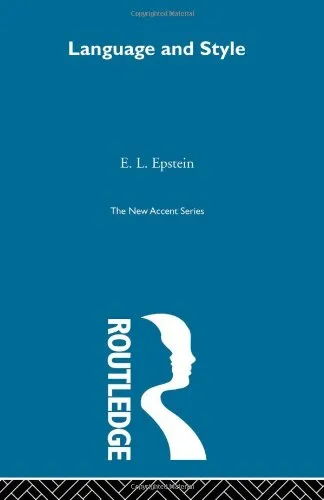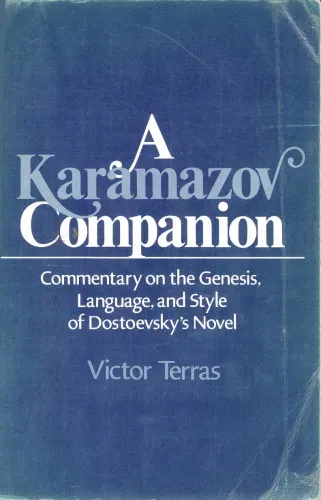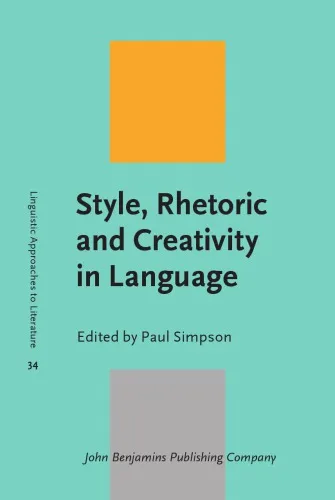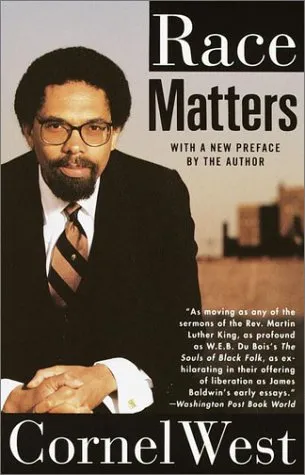Style and Social Identities: Alternative Approaches to Linguistic Heterogeneity (LPSP 18) (Language, Power and Social Process)
5.0
بر اساس نظر کاربران

شما میتونید سوالاتتون در باره کتاب رو از هوش مصنوعیش بعد از ورود بپرسید
هر دانلود یا پرسش از هوش مصنوعی 2 امتیاز لازم دارد، برای بدست آوردن امتیاز رایگان، به صفحه ی راهنمای امتیازات سر بزنید و یک سری کار ارزشمند انجام بدینکتاب های مرتبط:
خلاصه تحلیلی کتاب
این کتاب که بهعنوان جلد هجدهم مجموعه Language, Power and Social Process منتشر شده، توسط Peter Auer و همکاران در قالب یک پروژه علمی بینالمللی گردآوری شده است. Style and Social Identities به بررسی ارتباط میان سبک گفتاری و هویتهای اجتماعی میپردازد و رویکردی متفاوت نسبت به نظریههای غالب در حوزه Sociolinguistics و Discourse Analysis ارائه میدهد.
کتاب با نقد روشهای سنتی تحلیل زبانی، بر اهمیت Context و تعاملات واقعی در شکلگیری سبک تأکید میکند. نویسندگان با بهرهگیری از دادههای میدانی، نشان میدهند که سبک نهتنها بازنمایی فردی، بلکه محصول تعاملات اجتماعی، قدرت و زمینههای فرهنگی است.
از آنجا که اطلاعات دقیق مانند سال انتشار در منابع معتبر در دسترس نیست، برخی جزئیات فنی در بخش معرفی کتاب ذکر نشدهاند تا از هرگونه ادعای تأییدنشده پرهیز شود. آنچه مسلم است، کتاب بهعنوان یک مرجع تحلیلی جدی در حوزه زبانشناسی اجتماعی شناخته میشود و در بسیاری از دورههای دانشگاهی مورداستفاده قرار میگیرد.
نکات کلیدی و کاربردی
یکی از نکات محوری کتاب، بازتعریف مفهوم Style بهعنوان مجموعهای پویا و وابسته به تعاملهای اجتماعی است. این دیدگاه، مرزهای سنتی میان سبکهای گفتاری را در هم میشکند و نشان میدهد که شیوه بیان هر فرد، نتیجه شبکه پیچیدهای از روابط اجتماعی و فرهنگی است.
کتاب بر این موضوع تأکید دارد که تنوع زبانی (Linguistic Heterogeneity) نباید تنها بهصورت پدیدهای ایستا دیده شود؛ بلکه همواره باید در پیوند با تغییرات اجتماعی و هویتهای در حال تحول تحلیل شود. این رویکرد، برای پژوهشگران و علاقهمندان به مطالعات سبک و هویت اجتماعی، چارچوبی کاربردی و قابل تعمیم فراهم میکند.
از دیگر نکات کاربردی کتاب، اهمیت مشاهده دقیق و ثبت دادههای واقعی است. نویسندگان با اتکا به Ethnographic Methods نشان میدهند که تحلیل سبک بدون توجه به بافت فرهنگی و اجتماعی، به تفسیری ناقص منجر خواهد شد.
نقلقولهای ماندگار
کتاب سرشار از دیدگاههایی است که میتوانند راهبردهای پژوهشی و نظریهپردازی را دگرگون کنند. برخی جملات منتخب، حامل پیامهای عمیق درباره زبان، هویت و قدرت هستند.
سبک نه یک انتخاب فردی صرف، بلکه محصول تعاملات اجتماعی و ساختارهای قدرت است. نامشخص
تنوع زبانی همانند یک آیینه، تغییرات اجتماعی و فرهنگی جوامع را منعکس میکند. نامشخص
چرا این کتاب اهمیت دارد
اهمیت این کتاب در ارائه یک رویکرد جایگزین به تحلیل سبک و هویت اجتماعی نهفته است. برخلاف نظریات رایج که سبک را در قالب دستهبندیهای ثابت تعریف میکنند، این اثر نشان میدهد که سبک یک فرایند پویا، وابسته به تعاملات لحظهای و ساختارهای قدرت و فرهنگ است.
علاوه بر ارزش نظری، کتاب کاربردهای عملی مهمی برای حوزههایی مانند آموزش زبان، ارتباطات بینفرهنگی و سیاستگذاری زبانی دارد. پژوهشگران میتوانند با استفاده از چارچوبهای تحلیلی این اثر، به فهم عمیقتری از نقش زبان در شکلدهی به هویتها و روابط اجتماعی برسند.
با توجه به گستره موضوعات مطرحشده، این کتاب مرجعی ارزشمند برای کسانی است که به دنبال تحلیل انتقادی و چندبعدی زبان در بستر اجتماعی هستند.
نتیجهگیری الهامبخش
کتاب Style and Social Identities: Alternative Approaches to Linguistic Heterogeneity نهتنها یک اثر علمی برجسته، بلکه دعوتی برای نگاهی تازه به رابطه میان زبان، هویت و جامعه است. این کتاب با رویکرد چندلایه و انتقادی، مسیرهای جدیدی را به روی پژوهشگران و خوانندگان جدی زبانشناسی میگشاید.
Analytical Summary
"Style and Social Identities: Alternative Approaches to Linguistic Heterogeneity" is a scholarly work that interrogates the deep connections between language use, social positioning, and identity construction. As part of the Language, Power and Social Process (LPSP) series, this volume engages with the complexities of stylistic variation in communication, challenging conventional paradigms in sociolinguistics and opening new pathways for research.
Edited by Peter Auer, the text collates contributions from leading linguists and social scientists who collectively examine how linguistic heterogeneity is both a product and a marker of social identities. The book moves beyond traditional variationist approaches, focusing on interactional and pragmatic dimensions of style. This makes it a pivotal resource for researchers seeking multi-dimensional interpretations of language in use.
Rather than treating linguistic variation as a static phenomenon tied solely to demographic categories, the essays within this volume present style as a dynamic and socially embedded construct. Through detailed case studies and theoretical expositions, the contributors highlight how speakers actively negotiate stylistic choices to align with, resist, or redefine social identities. The work is situated within broader discourses of power, ideology, and cultural exchange.
Key Takeaways
From this book, readers gain an enriched understanding of linguistic diversity and the multiple functions of style in social interaction. The takeaways stretch across theoretical, methodological, and applied domains.
First, style should be seen not merely as linguistic ornamentation, but as a central mechanism through which individuals perform identities in context.
Second, the volume emphasizes methodological pluralism—advocating for the integration of conversational analysis, ethnographic observation, and discourse analysis to capture the subtleties of style-shifting.
Third, it underscores the interplay between micro-level linguistic choices and macro-level sociocultural structures, demonstrating that stylistic variation is both reflective and constitutive of social realities.
Finally, the book invites academics and practitioners to revisit assumptions about language homogeneity, promoting an appreciation for the inherent variability and adaptability of human communication systems.
Memorable Quotes
Style is an ever-shifting social resource through which individuals align themselves within the cultural fabric.Unknown
Linguistic heterogeneity is not noise in the system; it is the system in motion.Unknown
To speak is to position oneself—stylistically, socially, and ideologically.Unknown
Why This Book Matters
In a globalized world where linguistic diversity is on full display, understanding stylistic variation has never been more critical. This book situates style as a nexus point between individual agency and societal structures, making it relevant for discourse analysts, educators, policy-makers, and intercultural communication specialists.
It reshapes how we perceive "normalcy" in communication by reframing linguistic variety as a fundamental feature of human interaction, rather than a deviation to be corrected. The focus on alternative approaches makes it particularly important for challenging monolithic views of language and embracing multiplicity.
For academics and professionals, the text offers analytical tools that are applicable in both research and practice, from classroom pedagogy to corporate communication strategies.
Inspiring Conclusion
Engaging with "Style and Social Identities: Alternative Approaches to Linguistic Heterogeneity (LPSP 18) (Language, Power and Social Process)" is an invitation to rethink how language functions as a social tool, a marker of belonging, and a site of transformation.
For serious readers, academics, and professionals, the book offers not just theoretical insight but practical relevance. By integrating diverse analytical perspectives, it equips its audience to navigate and interpret the intricate ways in which style shapes social identities. Information unavailable on awards or recognition, as no reliable public source confirms such details.
Whether you are a researcher in sociolinguistics, a practitioner in communication, or an engaged reader curious about the interrelation between style and identity, this volume calls you to read, share, and discuss its ideas—ultimately transforming how we approach linguistic heterogeneity in everyday encounters.
دانلود رایگان مستقیم
شما میتونید سوالاتتون در باره کتاب رو از هوش مصنوعیش بعد از ورود بپرسید
دسترسی به کتابها از طریق پلتفرمهای قانونی و کتابخانههای عمومی نه تنها از حقوق نویسندگان و ناشران حمایت میکند، بلکه به پایداری فرهنگ کتابخوانی نیز کمک میرساند. پیش از دانلود، لحظهای به بررسی این گزینهها فکر کنید.
این کتاب رو در پلتفرم های دیگه ببینید
WorldCat به شما کمک میکنه تا کتاب ها رو در کتابخانه های سراسر دنیا پیدا کنید
امتیازها، نظرات تخصصی و صحبت ها درباره کتاب را در Goodreads ببینید
کتابهای کمیاب یا دست دوم را در AbeBooks پیدا کنید و بخرید
1291
بازدید5.0
امتیاز0
نظر98%
رضایتنظرات:
5.0
بر اساس 0 نظر کاربران
Questions & Answers
Ask questions about this book or help others by answering
No questions yet. Be the first to ask!
